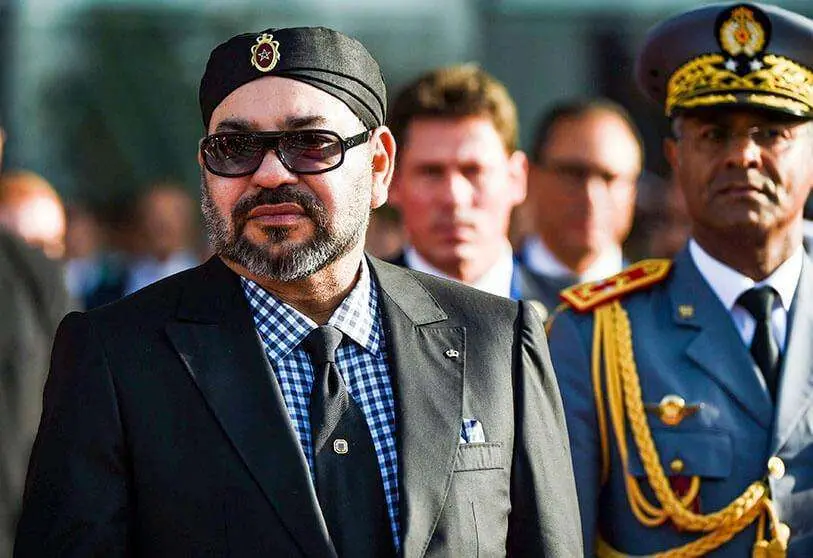Morocco changes paradigm

The accumulation of polemics between Spain and Morocco makes the doctrine of the 'cushion of interests', based exclusively on economic reasons as an excuse to avoid political problems, obsolete.
Rabat's new policy - which Madrid overlooks - in its international relations consists of preventing countries from playing the game of ambiguity on a nuclear issue such as the Southern Provinces.
With the Ghali affair, Spain has changed the tone of bilateral relations which, on the other hand, have long been constrained by economic issues, often overwhelmed by controversies, and now seem to have been overtaken by the new common geostrategic context.
The closest precedent is Germany, with which Morocco has suspended relations for calling an emergency meeting of the UN Security Council after Trump's recognition, for distancing Rabat from the Berlin meeting in 2020, which aimed to promote a peace agreement in Libya by underestimating the efforts of Morocco, which facilitated the so-called Sjirat Agreement, where the two Libyan parliaments were reunited, for raising the flag of the virtual Sahrawi republic in Bremen's city hall, for revealing sensitive information, etc.
In the case of Spain, the grievances are many. Without going any further, the fugitive Ghali has still not been arrested (Pinochet was arrested at the London Clinic). Spanish MPs and MEPs ask Biden to revoke Trump's decision, the reception of a delegation from the virtual Saharawi republic by a member of the Spanish government, the dying Cs party asks the US to suspend the sale of missiles to Morocco, the Polisario flags that are raised in some Spanish town halls (already banned by the Supreme Court), the active militarism of Spanish pro-Polisario associations, the substantial aid from the Spanish government to these separatists (more than 10 M. 10 M. per year = 10 Russian tanks), Spain's attempt to obstruct, before the EU, the granting of credits for the financing of the port of Tangier-Med. And so on and so forth, a host of antipathies towards Morocco. These are legitimate actions, although they reflect an animosity worthy of a separate study, and make Spain the second most hostile country after Algeria.
On the other hand, Morocco does not admit Basque separatists, nor Canarian or Catalan independentists, nor does it hoist their respective flags. Nevertheless, it accepts the role of Europe's gendarme, a decision viewed with suspicion by some African countries, as well as accusations from Spanish human rights NGOs for its alleged heavy-handedness in its fight against illegal immigration. Moreover, it has stood by Spain's integrity before the Organisation of African Union (OAU, now the African Union, AU) when Algeria proposed a vote on 'Africanness' and the 'decolonisation of the Canary Islands'. Moreover, the Moroccan people have a great appreciation for Spain and it is known that a part of the Spanish people loves, knows and longs for Morocco.
It should be stressed that Spain occupied and plundered the Sahara without remorse for more than 90 years, so where was this anti-Moroccan Spain that today flies the Polisario flag? What worries Morocco most is that it is the Spanish government itself that is opening fronts with its "preferred" partner. Especially when the fugitive Ghali had been rejected by Germany. This suggests a show of arrogance. It also insinuates that it is in Spain's interest for the Sahara issue to drag on (typical delaying tactics) and, over time, weaken the Alawi country by making a pincer movement with Algeria. It also assumes that Spain does not want a strong Morocco in the area but a country it wants to treat as a foil. It also suggests that the concealment of the separatist Ghali would avoid Morocco's reaction in an act of cowardice, thus underestimating Moroccan intelligence. It is in this way that Sánchez's executive has compromised the country's credibility in an attempt to violate the right of the Polisario fugitive's victims by founding its own 'sewer' of a state.
Morocco does not demand Spanish recognition of its Southern Provinces - Spain already did that the day it lowered its flag and raised the Moroccan one - it only demands neutrality and that Spain (or Germany) does not go against its interests, and this is the background to the issue. For Spain's stability depends on Morocco's and vice versa. Germany is a long way from both, and its dictionary does not include more than 10,000 words of Arabic origin like the DRAE and as many Spanish words in the Moroccan dialect.
It is evident that the progress made by Morocco in the last two decades places Spain in a new reality, where the famous 'interest cushion' is more than worn out with so much bouncing around, and incapable of cushioning real problems, if not obviating them. A corset that is too small for Rabat as an emerging regional power with roots in Africa. Attempting to solve major political problems in a restricted 'economic' sphere is like trying to cover the sun with a sieve, given the current geostrategic horizon in which Madrid seems to have lost all ambition.
Hence Morocco's decision to change paradigm, and not to allow any more ambiguity from Germany, Spain or any other country. The suspension of diplomatic relations with Spain is imminent, precipitated by the inaction of the Spanish judiciary. Whatever the outcome, the Ghali affair has undermined all trust between the parties and marked a turning point in bilateral relations. And, with it, the anachronistic model has been shattered.
A new diplomacy will have to be based on a realistic format that goes beyond economic conditioning factors and includes geopolitical interests that are in keeping with the context and that favour stability. And, from the economic point of view, relations must be based on shared rather than confrontational competitiveness, complementarity and Win-Win cooperation.

